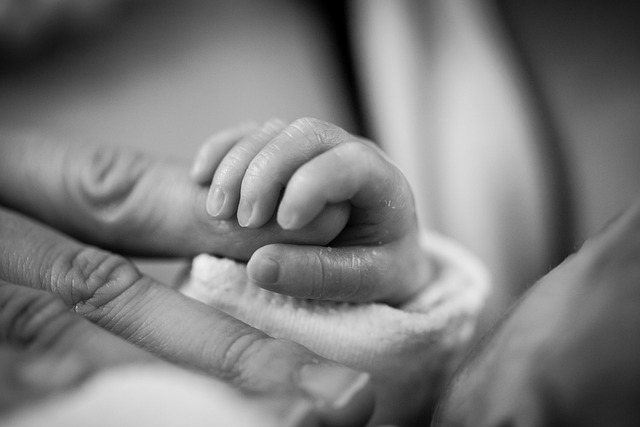In multicultural societies like the UK, accurate Birth Certificate Translation UK is essential for legal recognition, citizenship, passports, and access to services. Strict legal requirements govern translations, emphasizing precision and authenticity. Professional translators follow meticulous processes involving document acquisition, cultural adaptation, review, formatting, and quality assurance checks. Reputable firms employ native-speaking experts with legal experience to minimize errors, ensuring correct detail conveyance in target languages like Spanish or French. Technological innovations like machine translation (MT) and artificial intelligence (AI) are transforming the UK market, offering faster, more accessible, and precise Birth Certificate Translation UK services with legal validity.
In today’s globalized world, accurate and official birth certificate translations are paramount for individuals with multilingual backgrounds. The UK, a multicultural society, recognizes the importance of facilitating access to services for all citizens, requiring birth certificates to be translated into various languages. This article explores the significance of precise translations, delving into legal requirements, translation processes, choosing reliable service providers, addressing challenges, and anticipating future trends driven by technology in the realm of UK birth certificate translation services.
- Understanding the Importance of Accurate Translations for Birth Certificates
- Legal Requirements and Recognised Languages in the UK
- The Process of Translation: From Document Collection to Delivery
- Choosing a Reputable Translation Service for Sensitive Documents
- Common Challenges and How to Overcome Them
- Future Trends: Technology's Role in Birth Certificate Translation Services
Understanding the Importance of Accurate Translations for Birth Certificates

Accurate translations for official birth certificates are paramount, especially in multicultural societies where families often hail from diverse linguistic backgrounds. In the UK, for instance, where immigration has significantly enriched the nation’s fabric, ensuring clear and precise translations is crucial for legal recognition and personal documentation. A single error in a birth certificate translation can lead to significant consequences, including issues with citizenship, passport applications, and even access to essential services like healthcare.
Therefore, when dealing with birth certificates, it’s not just about translating words; it’s about preserving the integrity of an individual’s identity and their legal standing. Professional translators, especially those specialising in legal documents, understand this responsibility. They employ meticulous processes, including the use of certified translation services, to guarantee accuracy while also maintaining the original document’s authenticity. This is particularly important for official birth certificate translations in the UK, where precision and compliance with local laws are non-negotiable.
Legal Requirements and Recognised Languages in the UK

In the UK, the legal requirements for birth certificate translations are stringent, ensuring accuracy and authenticity. When translating official documents like birth certificates, it’s crucial to adhere to specific guidelines set by the government. The primary focus is on preserving the original information while accurately representing it in another language.
Recognised languages play a significant role here. The UK supports translations into numerous languages due to its diverse population and historical connections. Common languages include Spanish, French, German, and Arabic, among others. This accessibility ensures that individuals from various ethnic backgrounds can have their birth certificates translated into a language they understand, facilitating easier processes like applying for passports or other official documents, both within the UK and internationally.
The Process of Translation: From Document Collection to Delivery

The process of translating official birth certificates involves several meticulous steps, ensuring accuracy and compliance with legal requirements. It begins with the collection of the original document from the issuing authority, such as a registry office in the UK. This initial step is crucial to obtaining an authentic copy for translation. Once acquired, professional translators carefully study the certificate, taking note of vital details like names, dates, and places.
The actual translation process involves not just word-for-word conversion but also cultural adaptation to meet the language’s conventions. After completing the draft, translators review and edit their work, ensuring precision and fluency in the target language, be it Spanish, French, or any other requested language for a Birth Certificate Translation UK service. The translated document is then formatted to match the original’s layout, guaranteeing a clear and legible final product. Finally, quality assurance checks are conducted to deliver an error-free certificate ready for official use or record-keeping.
Choosing a Reputable Translation Service for Sensitive Documents

When it comes to translating official birth certificates, accuracy and reliability are paramount. Choosing a reputable translation service is essential to ensure that your sensitive document retains its integrity and legal validity. In the UK, for instance, where multilingual populations demand accurate documentation, many professional services offer birth certificate translation. These experts not only possess fluency in multiple languages but also understand the nuances of legal documentation, ensuring every detail is conveyed correctly.
Reputable translation services invest in qualified translators who are native speakers and have extensive experience with official documents. They follow strict quality control procedures to guarantee accuracy and often provide certifications to validate their work. This is particularly important when dealing with birth certificates, as errors or misinterpretations could lead to significant issues for individuals seeking international recognition of their citizenship or access to services in a foreign country.
Common Challenges and How to Overcome Them

The process of translating official birth certificates into multiple languages presents several challenges. One of the primary difficulties is maintaining accuracy and legal validity. Birth certificate translations must be word-for-word precise to avoid any potential discrepancies that could impact their authenticity. Furthermore, different languages have varying grammatical structures and conventions, making it crucial for translators to have in-depth knowledge of both source and target languages.
To overcome these challenges, it’s essential to engage professional translation services with experience in legal documentation. Specialized translators who are native speakers can ensure accurate and culturally appropriate translations. Additionally, utilizing advanced translation technologies and quality assurance processes helps catch any potential errors or inconsistencies. In the UK, for instance, many reputable translation services offer certified birth certificate translations that meet legal standards, providing peace of mind for individuals requiring documents in different languages.
Future Trends: Technology's Role in Birth Certificate Translation Services

The future of birth certificate translation services is set to be transformed by technology, particularly with advancements in machine translation (MT) and artificial intelligence (AI). These tools are becoming increasingly sophisticated, capable of delivering high-quality translations in a fraction of the time it would take human translators. For instance, in the UK, where demand for birth certificate translations is high due to global migration, innovative platforms can offer instant, accurate translations in multiple languages, streamlining the process for both individuals and official bodies.
AI-driven systems can handle vast amounts of data, learning from each translation task to improve accuracy over time. This not only enhances efficiency but also ensures consistency across different language pairs. With technology leading the way, the birth certificate translation UK market is poised for a significant shift, offering faster, more accessible services while maintaining the highest levels of precision and legal validity.
In light of the above discussions, it’s clear that accurate birth certificate translations are vital for individuals with multilingual backgrounds, particularly in the UK. The demand for reliable and legally acceptable birth certificate translation services is rising, driven by a diverse population and global connectivity. As technology advances, we can expect more efficient processes, improved accuracy, and enhanced accessibility in the field of birth certificate translation in the UK, ensuring that sensitive documents are handled with precision and professionalism.
